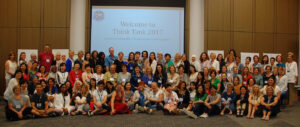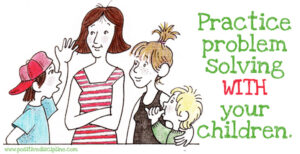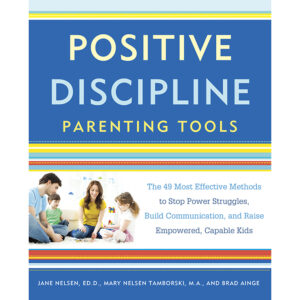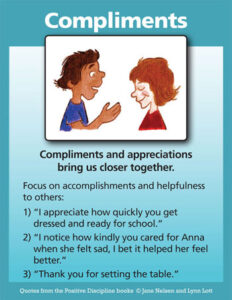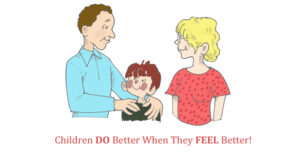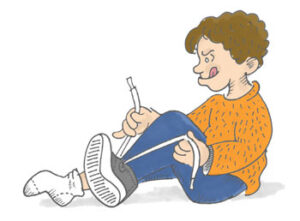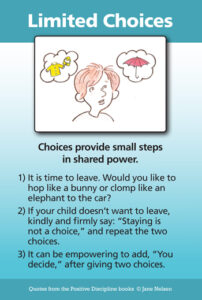Think Tank I never cease to be amazed at the wonderful people who are attracted to do Positive Discipline work. They are such creative, fun, dedicated, and passionate people who really believe it is possible to create peace in the world through peace in homes and schools. Last week over 100 people who are either Certified […]
Articles
7 Ways Busy Parents Can Help Their Children Feel Special
by Dr. Jane Nelsen busy-mom-news-2.jpg Do you ever wonder, “Will my children suffer because they have a working parent? Will they be deprived?” The answer: That depends on what you believe and what you do. Many happy, successful people have been raised by working parents. It is not the circumstance of life, but how we […]
Problem Solving
problem-solving-parents.jpg by Jane Nelsen We can use daily challenges as opportunities to practice problem solving WITH our children. Children are great problem solvers when we give them the opportunity to brainstorm and come up with solutions. What a great life skill—to teach kids to focus on solutions when there is a problem. One summer we […]
HOW IS POSITIVE DISCIPLINE DIFFERENT?
Excerpt from Positive Discipline Parenting Tools Book by Jane Nelsen, Mary Nelsen Tamborski, and Brad Ainge The majority of discipline models practiced in homes and schools today are based on punishments and rewards. Positive Discipline is based on the Adlerian model of eliminating all punishment and rewards in favor of encouragement that addresses the basic […]
Compliments Create a Positive Atmosphere in Homes and Classrooms
compliments-parents-web.jpg by Jane Nelsen Compliments and appreciations bring us closer together. Finding ways to compliment your children can be a very valuable parenting tool. So often we are focused on what our children have done wrong. This week focus on what your children have done right and give them an appropriate compliment. “I appreciate […]
Children DO Better When They FEEL Better
An excerpt from the book Positive Discipline by Dr. Jane Nelsen. motivation.jpg Where did we ever get the crazy idea that to make children do better, first we have to make them feel worse? Think of the last time you felt humiliated or treated unfairly. Did you feel like cooperating or doing better? Take time […]
7 Tips for a Happy, Successful School Year
by Mike Brock students_04.png For many children and their parents, returning to school is a joyful occasion—reconnecting with school friends and families, the excitement of purchasing school supplies and new clothes, the return to the comfort and normalcy of the school routine, and, of course, the gift of a little breathing space for Mom and […]
When are Children Old Enough to Participate in Family Meetings?
Question: Jane – How old do you suggest children be to start family meetings? My boys are 3 1/2 and 5 years old. I’d like to start family meetings to discuss issues that need to be addressed and get the boys involved, but I’m thinking they may be too young. Thanks. Julie Answer: Hi Julie, […]
Teaching Responsibility: When Does it Happen?
responsibility_blog.jpg by Jane Nelsen I have been hearing questions such as… “How can I get my two-year-old to pick up his toys by himself?” (You can’t.) “Why does my teenager say she’ll empty the garbage and then avoid doing it unless I nag?” (She has a gazillion other life questions plaguing her.) “Why won’t my […]
Limited Choices
limited-choices-parents.jpg A Positive Discipline Tool Card Offering limited choices instead of making demands can be very effective. Children often respond to choices when they will not respond to demands, especially when you follow the choice with, “You decide.” Choices should be respectful and should focus attention on the needs of the situation. Choices are directly […]

